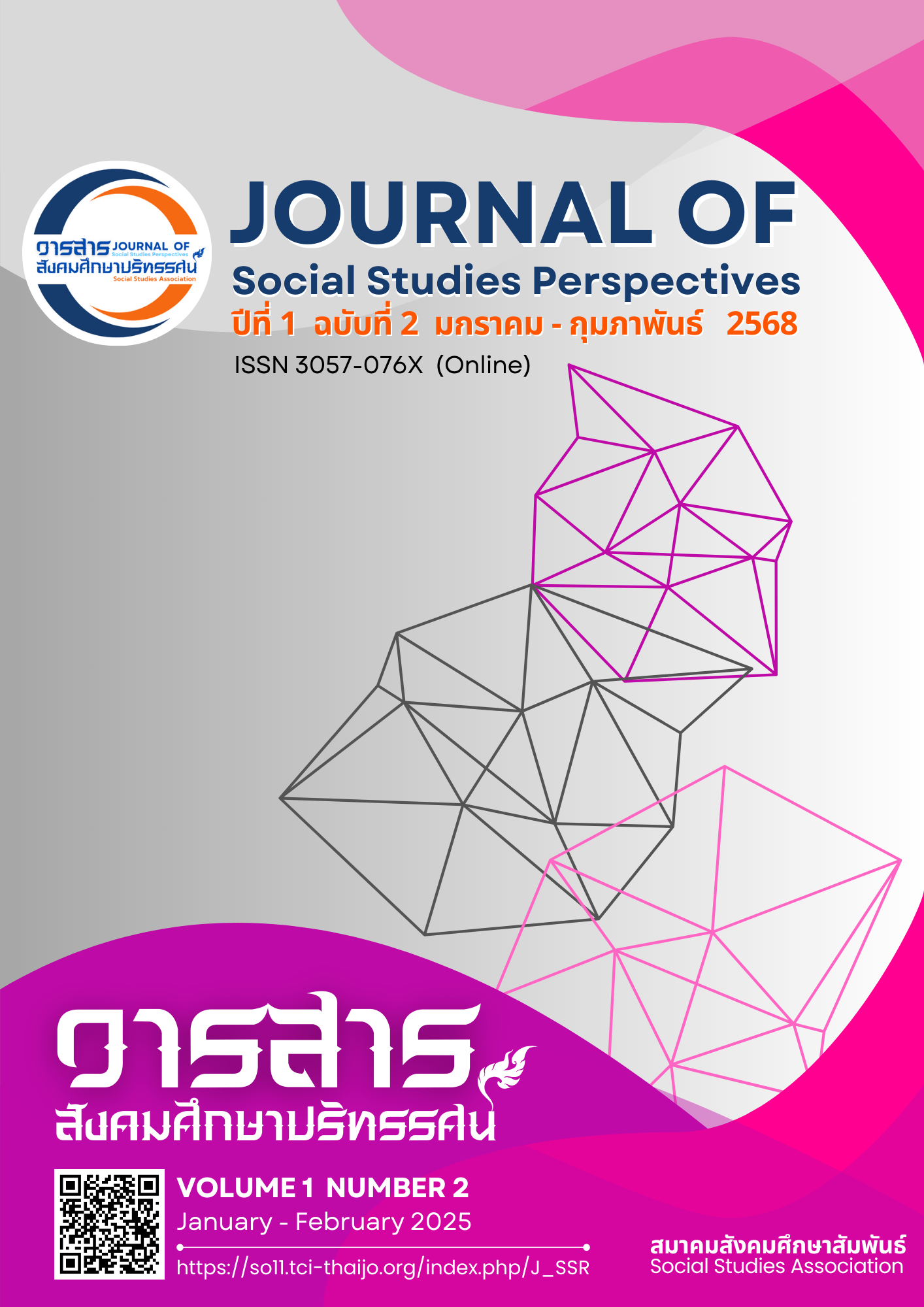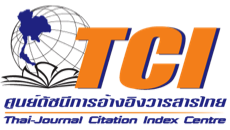AI กับการศึกษา: ตัวช่วยสุดอัจฉริยะ เพื่อพัฒนาการเรียนรู้
DOI:
https://doi.org/10.64186/jsp1310คำสำคัญ:
เอไอกับการศึกษา, ปัญญาประดิษฐ์, เอไอบทคัดย่อ
การใช้ปัญญาประดิษฐ์ (AI) ในการศึกษา นำมาใช้เป็นเครื่องมือในการเสริมสร้างการเรียนรู้ได้อย่างมีประสิทธิภาพ โดยการประยุกต์ใช้เทคโนโลยี AI ไปสำหรับผู้สอน ผู้เรียน และสถานศึกษา เพื่อพัฒนาการเรียนรู้ การสนับสนุนการเรียนรู้แบบเฉพาะบุคคในการเรียนรู้แบบปรับเหมาะ (Adaptive Learning) ซึ่งปรับเนื้อหาและกระบวนการสอนให้ตรงกับความต้องการและศักยภาพของผู้เรียนแต่ละคน การพัฒนาสื่อการเรียนรู้ที่มีปฏิสัมพันธ์สูง การประเมินผลที่ปรับตัวตามระดับทักษะของผู้เรียน การให้คำแนะนำที่เป็นส่วนตัว และเพิ่มแรงจูงใจในการเรียนรู้ นอกจากนี้ AI ยังมีศักยภาพในการลดความไม่เท่าเทียมทางการศึกษา โดยการสร้างโอกาสและการเข้าถึงการเรียนรู้สำหรับกลุ่มผู้เรียนทุกกลุ่ม รวมถึงผู้ที่มีอุปสรรคด้านภาษาหรือการเรียนรู้ นอกจากนี้ยังช่วยพัฒนาความสามารถของครูในด้านเทคโนโลยี การจัดการการสอน และการเตรียมระบบการศึกษาของสถานศึกษา ให้มีพร้อมสำหรับอนาคตที่เทคโนโลยีมีบทบาทสำคัญ ผลการศึกษาชี้ให้เห็นว่า การบูรณาการ AI ในการศึกษาไม่เพียงช่วยเพิ่มประสิทธิภาพของการเรียนรู้ แต่ยังสร้างระบบการศึกษาที่ เท่าเทียม ยั่งยืน และพร้อมรองรับการเปลี่ยนแปลงในอนาคต
เอกสารอ้างอิง
Announcement from the Ministry of Education on the Ministry of Education's Educational Policy for the Fiscal Year B.E. 2568-2569. (2024, November 13). Government Gazette. No. 141 Section 309 D. page 11–13.
Chatwattana, P1., Yangthisarn, P2., & Tabubpha, A3. (2024). The Educational Recommendation System with Artificial Intelligence Chatbot: A Case Study in Thailand. International Journal of Engineering Pedagogy, 14(5).
Chiang Mai University. (2022). Report on the implementation of the AI Tutor project for teaching university-level physics. Faculty of Science, Chiang Mai University.
DIA. (2024). AI and Education: The Ultimate Intelligent Assistant for a New Dimension of Better Learning. in-education.
Digichina Stanford. (2017). Full Translation: China’s ‘New Generation Artificial IntelligenceDevelopment Plan’. https://digichina.stanford.edu/work/full-translationchinasnew-generation-artificial-intelligence-development-plan-2017
Dutta, S1., Ranjan, S., Mishra, S2., Sharma, V3., Hewage, P4., & Iwendi, C5. (2024, February). Enhancing educational adaptability: A review and analysis of AI-driven adaptive learning platforms. In 2024 4th International Conference on Innovative Practices in Technology and Management (ICIPTM) (pp. 1-5). IEEE.
ETS. (2023). AI and Education in 2030: Opportunities and Challenges in Learning. www.ets.kmutt.ac.th. https://www.ets.kmutt.ac.th/post/ai-in-education
Ezzaim, A1., Dahbi, A2., Aqqal, A3., & Haidine, A4. (2024). AI-based learning style detection in adaptive learning systems: a systematic literature review. Journal of Computers in Education, 1-39. Forbes. (2019). Why Is China The World's Leader In Edtech?. www.forbes.com . https://www.forbes.com/sites/sites/ricardogeromel/2019/04/05/ why-is-china-the-worlds-leader- inedtech/?sh=15772 d95756
Forero-Corba, W1., & Bennasar, F. N2. (2024). Techniques and applications of Machine Learning and Artificial Intelligence in education: a systematic review. RIED-Revista Iberoamericana de Educación a Distancia, 27(1).
Garcia Castro, R. A1., Chura-Quispe, G2., Velarde Molina, J. F3., Espinoza Ramos, L. A4., & Almonte Durand, C. A5. (2024). Bibliometric review on teaching methods with artificial intelligence in education. Online Journal of Communication and Media Technologies, 14(2), e202419.
Hairiyanto, Sartika, E., Fransiska, F. W., & Aslan. (2024). Understanding the students’ english learning achievement and home environment supports during school closure to respond to pandemic at private madrasah tsanawiyah at-takwa sambas. International Journal of Teaching and Learning, 2(4), Article 4.
Judijanto, L1., Atsani, M. R2., & Chadijah, S3. (2024). Trends In The Development Of Artificial Intelligence-Based Technology In Education. International Journal of Teaching and Learning, 2(6), 1722-1723.
Lohakan, M1., & Seetao2, C. (2024). Large-scale experiment in STEM education for high school students using artificial intelligence kit based on computervision and Python. Heliyon, 10(10).
Miao, F1., & Shiohira, K2. (2022). K-12 AI curricula. A mapping of government-endorsed AI curricula. UNESCO Publishing, https://unesdoc. unesco.org/ark:/48223/pf0000380602, 3, 1144399.
Mochizuki, Y1., & Vickers, E2. (2024). UNESCO, the geopolitics of AI, and China’s engagement with the futures of education. Comparative Education, 1-20.
Nkechi, A. A1., Ojo, A. O2., & Eneh, O. A3. (2024). Impact of Artificial Intelligence in Achieving Quality Education.
Nurson, N. L. (2024). Program Paket Kesetaraan Upaya Mengatasi Angka Putus Sekolah. MULTIPLE: Journal of Global and Multidisciplinary, 2(1), 838-844.
OECD. (2018). PISA 2018 results: Combined executive summaries. OECD Publishing.
Office of the Basic Education Commission (OBEC). (2021). Guidelines for Proactive Teaching and Learning (Active Learning). OBEC.
Office of the Education Council (OEC). (2020). AI for enhancing learning. Sweet Chili Graphics Co., Ltd.
Office of the Education Council (OEC). (2024). The application of AI in learning management: Examples of practices from abroad. Sweet Chili Graphics Co., Ltd.
Office of the Royal Society. (2019). Computer and information technology terminology. www.royin.go.th. https://www.royin.go.th
Sharma, D. S. (2024). Fostering inclusive education: harnessing ai in teacher training for digital equality. Genic Books Publisher PVT.LTD
Sriwat, K. (2024). When Education Faces AI: Which Aspects Must Thai Education Prepare For?. www.eef.or.th. https://www.eef.or.th/clip-ai-for-teaching-and-learning.
Sperling, K1., Stenberg, C. J2., McGrath, C3., Akerfeldt, A., Heintz, F., & Stenliden, L. (2024). In search of artificial intelligence (AI) literacy in Teacher Education: A scoping review. Computers and Education Open, 100169.
Suchato, A1., Prathanwanit, N2., Peerawat Chomphuyod, P3. & Panida Wiriyachaiyaporn, P4. (2023). Complete research report on the study of applying artificial intelligence to develop reading skills for elementary school students. OEC.
The Equitable Education Fund (EEF). (2023, August 31). AI: A New Dimension of Learning. [Video].
YouTube. https://www.youtube.com/watch?v=fyfnSGwjTIk
Waluyo, B1., & Kusumastuti, S2. (2024). Generative AI in student English learning in Thai higher education: More engagement, better outcomes?. Social Sciences & Humanities Open, 10, 101146.
ดาวน์โหลด
เผยแพร่แล้ว
รูปแบบการอ้างอิง
ฉบับ
ประเภทบทความ
หมวดหมู่
สัญญาอนุญาต
ลิขสิทธิ์ (c) 2025 วารสารสังคมศึกษาปริทรรศน์

อนุญาตภายใต้เงื่อนไข Creative Commons Attribution-NonCommercial-NoDerivatives 4.0 International License.
บทความนี้ได้รับการเผยแพร่ภายใต้สัญญาอนุญาต Creative Commons Attribution-NonCommercial-NoDerivatives 4.0 International (CC BY-NC-ND 4.0) ซึ่งอนุญาตให้ผู้อื่นสามารถแชร์บทความได้โดยให้เครดิตผู้เขียนและห้ามนำไปใช้เพื่อการค้าหรือดัดแปลง หากต้องการใช้งานซ้ำในลักษณะอื่น ๆ หรือการเผยแพร่ซ้ำ จำเป็นต้องได้รับอนุญาตจากวารสาร










